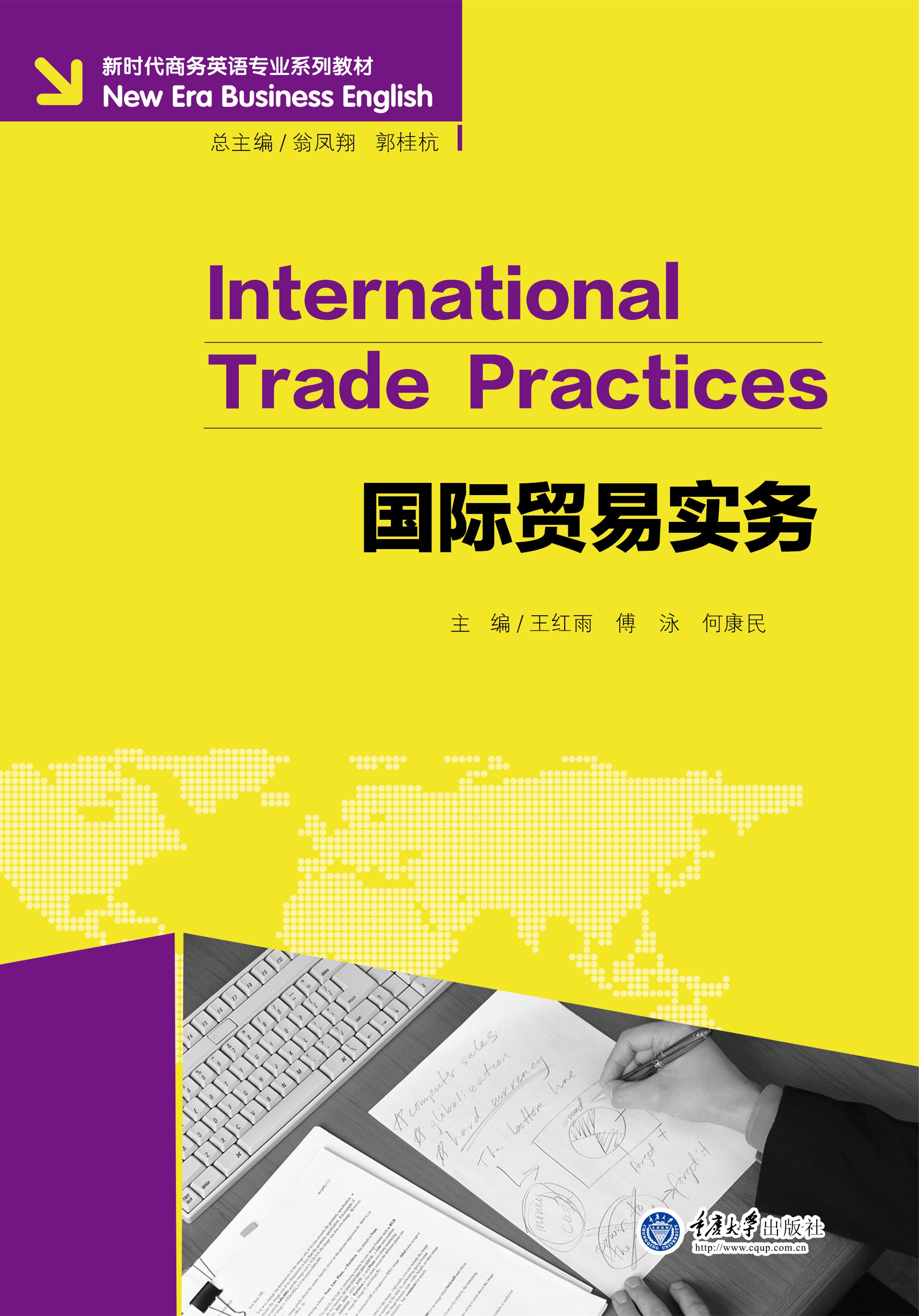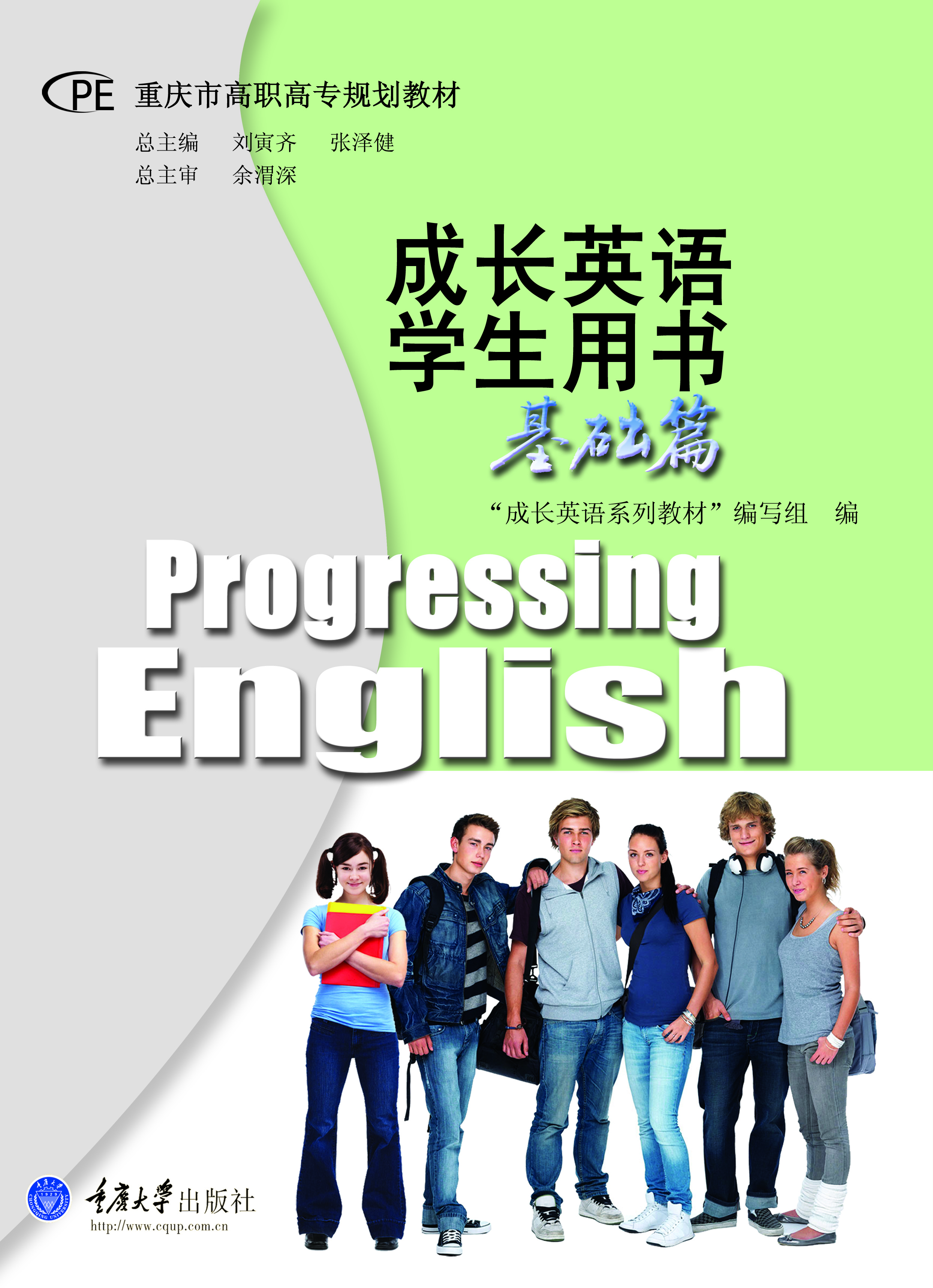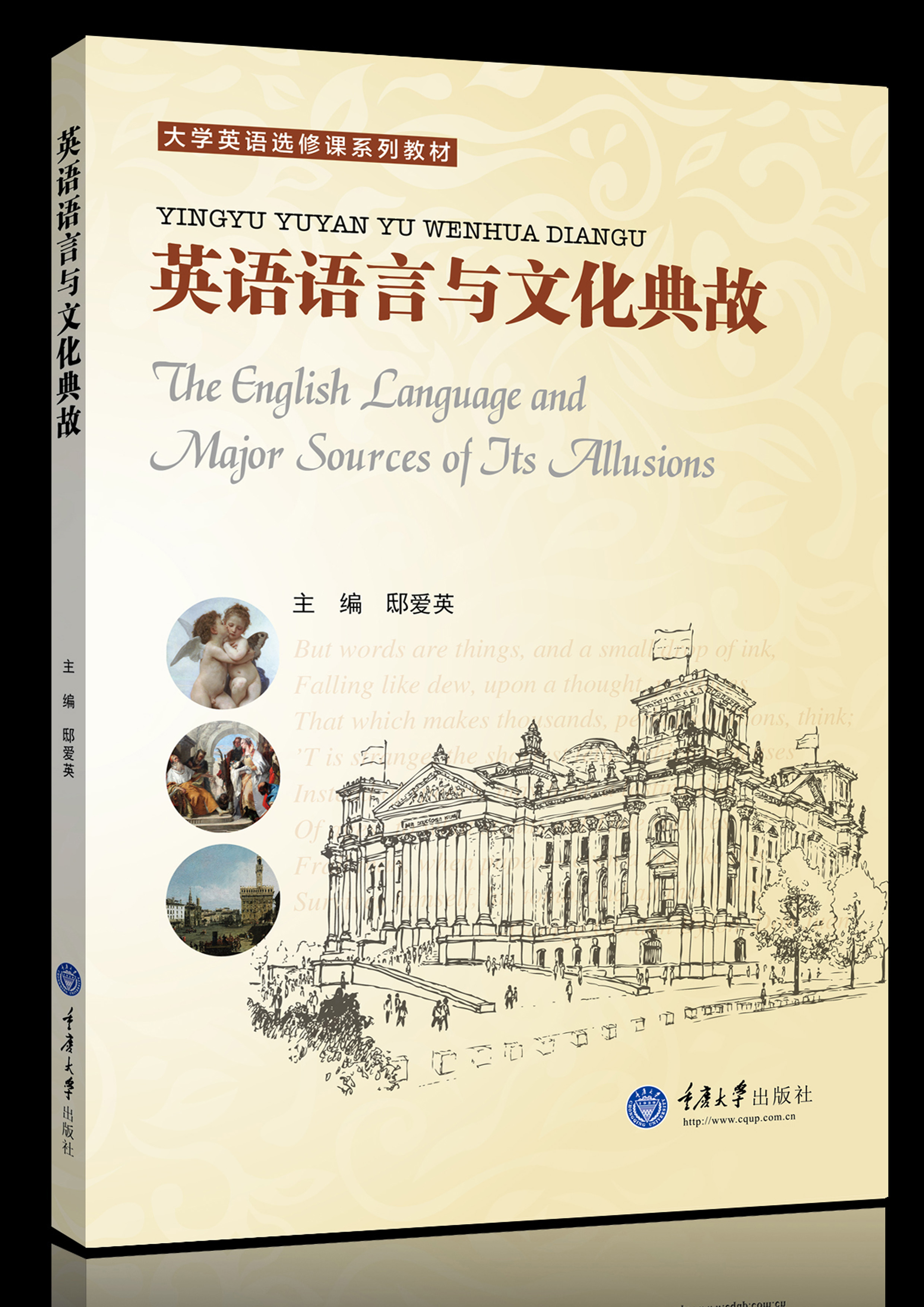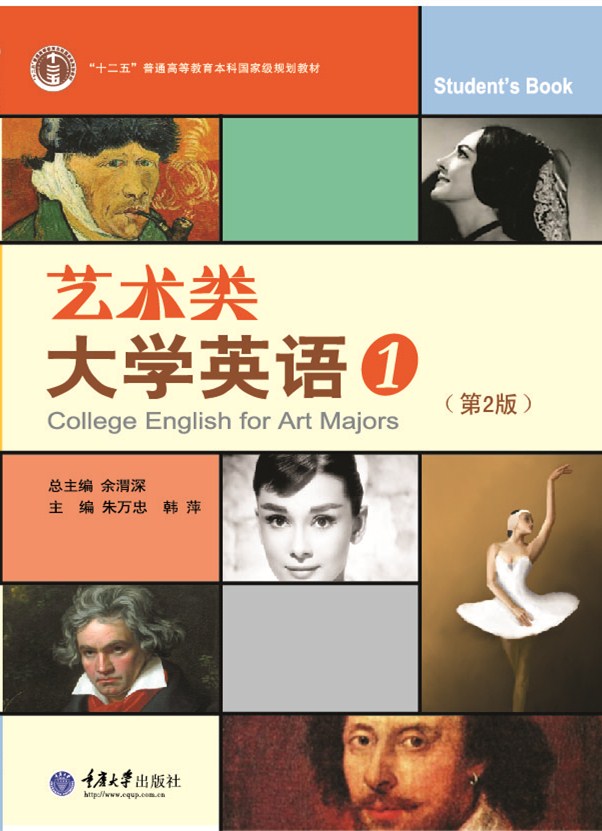英语语言与文化典故
系列名:大学英语选修课-语言文化类
书号:978-7-5624-9197-2
作者:邸爱英
页数: 258
开本: 16开
出版时间:2015-08-08
定价:39.00元
购买内容简介
● 本书以文化典故的角度为着眼点,引导学生在深入了解英语文化的基础上,增强英语学习兴趣,丰富英语语言知识,提高英语应用水平,欣赏英语文学之美。
● 全书共四章,涵盖英语习语、圣经文本、希腊罗马神话,莎士比亚著作四个方面,每章节在研读经典的基础上,围绕阅读材料提出问题激发批判性思考,并提供中西方对比主题的延伸阅读以及趣味欣赏。
● 本书适用于英语语言文化类选修课程,也可供具有一定英语水平的学生课外自修。
目录一览
Chapter One Where do All the Allusions Come from I. What Is an Allusion?
1. Definition of Allusion
2. Key Elements of Allusions
3. Quotes about Allusions
II. What Are the Major Categories of Allusions?
1. Historical—Religious/Mythological—Literary Allusions
2. Allusions to Events—Allusions to Quotes
3. Classical Allusions—Modern Allusions
III. Why do Writers and Poets Like to Use Allusions?
1. Examples from Miscellaneous Literary Works
2. Case Study: The Isles of Greece by Lord Byron
3. Major Purposes of Using Allusions in Literature
IV. Do People Use Allusions in Daily Communication?
Most Popular Allusions in Common Speech
V. How do Allusions Travel between English and Chinese?
1. Literal Translation
2. Substitutes
3. Free Translation
4. Omissions
Chapter Two The Bible
I. About the Bible
1. Basic Facts
2. Additional Facts
3. Quiz
II. Quotes on the Bible
III. In-class Reading Materials from the Bible
1. Passages
Passage One Seven Days of the Creation of the World
1. Passages
Passage Two Man’s Original Sin and the Loss of Paradise
Passage Three The Tower of Babel
Passage Four The Ten Commandments
Passage Five Solomon’s Wisdom
Passage Six The Birth of the Messiah
Passage Seven The Good Samaritan
2. Language in the Bible
IV. Discussions on the Bible
1. Comparative Study
2. Inconsistencies in the Bible
3. Surviving on Noah’s Ark
4. Different Voices
V. Fun Stuff
1. Jokes
2. Cartoon Comics
3. Riddles
4. Funny Bible Facts
5. Ten Misconceptions about the Bible
6. Bible Word Search Puzzle Game
VI.After-class Assignments
1. Creative Writings
2. Oral Presentation
3. Readings
The Trial that Rock the World
Einstein on God
Chapter Three Greek and Roman Mythology
I. About Greek and Roman Mythology
1. Why is it Necessary to Learn Greek and Roman Mythology?
2. What Is It?
3. Where did It Originate from?
4. How did it Come into Being?
II. Quotes on Greek and Roman Mythology
III. In-class Reading Passages from Greek and Roman Mythology
Passage One The Olympian Gods
Passage Two The Creation and Recreation of Man
Passage Three Cupid and Psyche
Passage Four Echo and Narcissus
Passage Five The Twelve Labors of Heracles
Passage Six The Trojan War
2. Idioms in Greek and Roman Mythology
IV. Discussions on Greek and Roman Mythology
1. Comparative Studies
2. Oral Presentations
V. Fun Stuff
1. Fun Facts about Mythology
2. Word Play and Jokes
3. Word Puzzles
VI.After-class Assignments
1. Creative writings
2. Translation
3. Readings
Viewpoint: In Defence of Narcissism
Chapter Four William Shakespeare
I. About Shakespeare
1. Shakespeare’s Life
2. Shakespeare’s Plays
3. Shakespeare’s Poems
4. The Making of Shakespeare
5. The Influence of Shakespeare
6. Poems in Praise of Shakespeare
II. Quotes on william Shakespeare
III. In-class Readings from Shakespeare’s Works
1. Sonnets
Sonnet 18 Shall I compare thee to a summer’s day?
Sonnet 19 Devouring time, blunt thou the lion’paws
Sonnet 23 As an unperfect actor on the stage
Sonnet 24 Mine eye hath play’d the painter, and hath stell’d
2. Plays
Hamlet
Romeo and Juliet
The Merchant of Venice
As You Like It
Macbeth
3. Shakespearean Quotes
4. Shakespearean Idioms
IV. Discussions on Shakespeare
1. Oral Presentation
2. About Hamlet
3. About The Merchant of Venice
4. About Romeo and Juliet
5. Shakespeare VS. Tang Xianzu
V. Fun Stuff
1. Cartoon Comics
2. Mysteries and Secrets of Shakespeare
3. Interesting Facts About William Shakespeare
4. Crossword Puzzles
VI. After-class Assignments
1. Role Play:An interview with Shakespeare
2. Creative Writing
3. After-class Reading
Suggested Keys and Answers to Exercises
References





